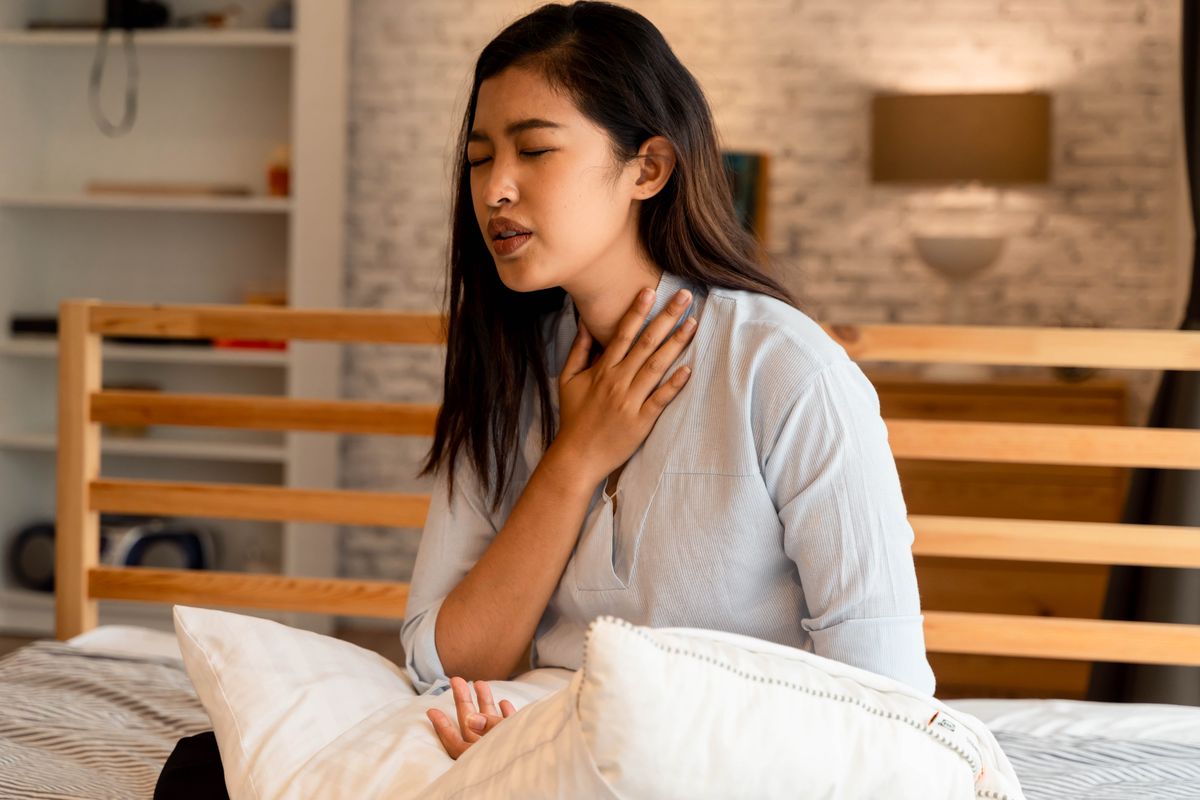Health
Allergic asthma: how to treat and prevent it

Allergic asthma is an inflammatory disease caused by certain substances outside the body. Let's find out why it occurs and how to act.
When we talk about allergic asthma we mean a form of asthma linked mostly to external factors which are allergens. These are usually represented by molds, dust mites, animal hair, food, insect venom, perfumes and other substances that can irritate the respiratory system.
It is an important pathology that must be treated in the best possible way. So let's find out what are the symptoms that distinguish it and how to act when it occurs.
Symptoms of allergic asthma
Unlike bronchial asthma , allergic asthma derives from a whole series of external factors that can affect the allergic person's breathing and symptoms in a more or less serious way.

This pathology can be chronic or intermittent and varies in severity based on several factors. In fact, they range from simple respiratory problems that return in a short time to real attacks that can lead to respiratory insufficiency such as to have to resort to hospitalization.
Typically, those who suffer from it have a general picture of the severity of the disease. However, even those with usually mild symptoms may not experience a severe attack . For this reason, allergic asthma should always be treated with the utmost attention from the first symptoms. Among them, the most important and typical of the pathology are:
– Dry and tickly cough
– Feeling of tightness in the chest
– Presence of mucus
– Wheezing
– Difficulty breathing well at night
– Shortness of breath even after small actions such as climbing stairs
– Respiratory difficulties
These symptoms can lead to small crises which, if caught in time, subside quickly or become more serious and require urgent medical attention.
Typically their manifestation can be acute, chronic (ie constant) or intermittent. In some cases, between one crisis and another, normal breathing returns. In others, however, it is possible that after-effects such as wheezing remain.
Allergy asthma why and how it is triggered
In most cases, allergic asthma sufferers start showing symptoms from an early age. Nonetheless, the possibility that the problem also arises in adulthood cannot be completely excluded.
As with various allergic reactions, symptoms are triggered when the allergic person comes into contact with a substance that the immune system recognizes as dangerous, giving rise to what is precisely an allergic reaction .
In the specific case of allergic asthma, this translates into an inflammation of the respiratory system whose functionality is altered in a slight or marked way and up to lead to the appearance of the symptoms mentioned above. In addition to external substances that can act as triggers, there are also other causes of allergic asthma to consider.
Among these are:
– Inheritance
– The presence of other pathologies of an allergic nature
– Respiratory infections
– The smoke
– Direct or constant exposure to chemicals
– Pollution
– Drugs
It is also important to know that if left untreated or kept at bay, allergic asthma can irritate the bronchial tubes to the point of triggering even in the absence of the presence of allergic substances and simply in contact with anything that can further irritate the bronchial tubes already tried. Possible triggers include exposure to cold air, respiratory infections, stress, strong emotions, and prolonged exertion or exercise.
Allergic asthma: diagnosis and treatment
In general, allergic asthma is diagnosed after a first attack followed by a careful medical history to which is added the knowledge of the whole history (family and personal) of the subject.
Subsequently, other check-ups are arranged such as allergy tests and some tests aimed at assessing respiratory capacity. In more complex cases it is possible that tests such as the bronchial provocation test are prescribed, to which X-rays or magnetic resonance imaging are usually added.
Once the presence of allergic asthma has been recognized and the main triggers understood, the most important thing is obviously prevention which consists in avoiding anything that could trigger a new attack. In this sense, it may be useful to check everything in the house carefully and avoid places outdoors in spring and, in general, all those where chemical agents or agents capable of triggering an allergic reaction are found.
In the event of a sudden attack, it is possible to resort to drugs such as bronchodilators or corticosteroids which must obviously always and only be prescribed by the attending physician. In some cases, their intake can in fact also be prescribed for preventive purposes. Which depends on various factors such as age, lifestyle, severity of the disease, etc…
How to prevent allergic asthma: some rules of good conduct
As already mentioned, the first thing to do in case of allergic asthma is to learn how to prevent it as much as possible by avoiding all possible risk factors.
Therefore, one of the main rules to follow is to always clean the house well and avoid the formation of dust. Avoid the formation of smoke or strong odors by frequently airing the house and applying mosquito nets at least during the spring and summer seasons.
Outside it is important to avoid cold or too dry air by using protective masks or scarves.
Smoking must be abolished and physical efforts must also be limited while physical activity must never be sudden or intense.
In this way, while following the medical directives, it will be possible to keep allergic asthma at bay as much as possible and lead an almost completely normal life.
Riproduzione riservata © - WT











